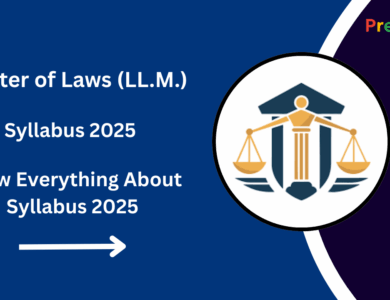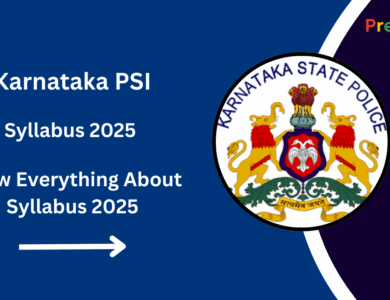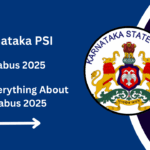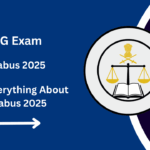AIBE Syllabus 2025 – Subject-Wise Topics & Pattern
Get the latest AIBE 2025 syllabus with detailed subject-wise topics, marks distribution, and exam pattern. Covers all 19 law subjects including IPC, CrPC, Constitution, and Evidence. Learn about the question breakup, open-book rules, and preparation strategy.

The All India Bar Examination (AIBE) is a national-level certification test conducted by the Bar Council of India (BCI) to evaluate whether law graduates possess the necessary skills and legal knowledge to practice law in India. Qualifying this exam grants a Certificate of Practice, allowing law graduates to practice in any Indian court.
The AIBE is an open-book exam (with limited materials allowed in recent versions), primarily based on multiple-choice questions. This article provides a complete overview of the AIBE syllabus 2025, including subject-wise topics, detailed topic descriptions, marks distribution, downloadable syllabus PDF, recommended books, preparation tips, and career specialization options.
AIBE 2025 Exam Overview
| Feature | Details |
|---|---|
| Exam Name | All India Bar Examination (AIBE) |
| Conducting Body | Bar Council of India (BCI) |
| Level | National |
| Purpose | Certificate of Practice for Law Graduates |
| Mode | Offline (Pen & Paper) |
| Medium | 22 Languages |
| Type of Questions | Multiple Choice Questions (MCQs) |
| Total Questions | 100 |
| Total Marks | 100 |
| Duration | 3 Hours 30 Minutes |
| Negative Marking | No |
| Qualifying Marks | 40% (General), 35% (SC/ST) |
All India Bar Examination (AIBE) 2025 – Subject-wise Detailed Topics & Descriptions
The syllabus consists of 19 subjects, grouped into major and minor subjects based on their weightage in the exam. The major subjects have 7–10 questions each, while minor subjects have 2–3 questions each.
| Subject | Topics | Description |
|---|---|---|
| 1. Constitutional Law | – Preamble – Fundamental Rights – Directive Principles of State Policy (DPSP) – Fundamental Duties – Amendment Procedure – Union and State Executive – Judiciary – Emergency Provisions |
Covers the structure, functions, powers, and responsibilities of various government bodies and the fundamental rights of citizens. Focus on key Articles like 14, 19, 21, and landmark judgments. |
| 2. Indian Penal Code (IPC) | – General Exceptions – Criminal Conspiracy – Offences Against Body – Offences Against Property – Offences Against Women – Abetment – Attempt – Defamation |
Deals with criminal offenses, their classifications, and punishments. Learn definitions, illustrations, and exceptions from Sections 1 to 511. |
| 3. Code of Civil Procedure (CPC) | – Jurisdiction – Parties to a Suit – Pleadings (Plaint and Written Statement) – Summons – Injunctions – Appeals and Revisions – Execution of Decrees |
Governs the procedures of civil litigation in India. Focus on Orders and Sections relevant to trials, appeals, and decrees. |
| 4. Criminal Procedure Code (CrPC) | – FIR – Bail – Arrest Procedure – Charges – Trial Procedure – Appeals – Revision – Cognizable & Non-Cognizable Offences |
Procedural law for administering criminal justice. Covers from investigation to judgment, focusing on Sections 154 (FIR), 167 (custody), etc. |
| 5. Indian Evidence Act | – Relevancy of Facts – Admissions and Confessions – Hearsay Rule – Burden of Proof – Witness Examination – Documentary Evidence – Presumptions |
Dictates rules regarding admissibility of evidence in court. Emphasize sections 5 to 167 and illustrations. |
| 6. Professional Ethics & Cases of Professional Misconduct | – Bar Council of India Rules – Duties of Advocates – Misconduct Cases – Disciplinary Committees – Advocates Act, 1961 – Contempt of Court |
Understand ethical responsibilities and behavior expected from lawyers. Know landmark cases like V.C. Rangadurai vs D. Gopalan. |
| 7. Alternative Dispute Resolution (ADR) | – Arbitration – Mediation – Conciliation – Lok Adalats – Negotiation |
Focuses on out-of-court settlements to reduce court burden. Important Acts: Arbitration and Conciliation Act, Legal Services Authorities Act. |
| 8. Family Law | – Marriage & Divorce – Maintenance – Guardianship – Succession & Inheritance – Adoption – Muslim Personal Law – Hindu Law |
Covers personal laws under Hindu and Muslim laws related to family relations and rights. Know about Hindu Marriage Act, Muslim Women (Protection of Rights) Act. |
| 9. Public Interest Litigation (PIL) | – Nature of PIL – Who Can File PIL – Locus Standi – Landmark PIL Cases |
Enables protection of public interest via judicial interventions. Important judgments: Vishaka v. State of Rajasthan, M.C. Mehta cases. |
| 10. Administrative Law | – Delegated Legislation – Natural Justice – Judicial Review – Administrative Tribunals – Writs (Mandamus, Habeas Corpus, etc.) |
Laws governing administrative agencies’ powers and limitations. Focus on Article 226 and 32 writ jurisdictions. |
| 11. Company Law | – Company Incorporation – Memorandum & Articles of Association – Board of Directors – Shareholders – Meetings – Winding Up |
Governs the functioning of companies in India. Based on Companies Act, 2013. Focus on incorporation, compliance, and director responsibilities. |
| 12. Cyber Law | – IT Act, 2000 – Cyber Crimes – Data Privacy – Electronic Records – E-commerce Contracts |
Legal issues in cyberspace: hacking, phishing, cyberstalking, electronic signatures. Sections 43, 66 of IT Act are important. |
| 13. Environmental Law | – Environmental Protection Act – Air & Water (Prevention) Act – Forest Act – Wildlife Protection Act – Public Liability Act – NGT |
Laws ensuring protection of environment and natural resources. Focus on role of National Green Tribunal and environmental ethics. |
| 14. Intellectual Property Rights (IPR) | – Copyrights – Trademarks – Patents – Geographical Indications – Trade Secrets |
Focus on protection of creative works, inventions, brand identity. Learn about Copyright Act, 1957; Trademark Act, 1999; Patent Act, 1970. |
| 15. Labour and Industrial Law | – Factories Act – Minimum Wages Act – Industrial Disputes Act – Payment of Wages Act – Trade Unions |
Covers rights of workers and duties of employers. Focus on provisions related to strike, layoff, retrenchment, gratuity. |
| 16. Law of Tort (including Motor Vehicle Accidents) | – Negligence – Nuisance – Strict & Absolute Liability – Vicarious Liability – Motor Vehicles Act Provisions |
Deals with civil wrongs and compensation. Key doctrines like Rylands v. Fletcher, and recent MV Amendment Act provisions. |
| 17. Law of Contract (including Specific Relief Act) | – Essentials of a Valid Contract – Offer & Acceptance – Consideration – Breach & Remedies – Specific Performance – Injunctions |
Learn Indian Contract Act, 1872 and Specific Relief Act. Focus on sections 1–75 and case laws related to enforceability. |
| 18. Land Acquisition Act | – Public Purpose – Compensation – Process of Acquisition – Rehabilitation & Resettlement – Right to Fair Compensation |
Understand land acquisition for public use and rights of displaced persons under RFCTLARR Act, 2013. |
| 19. Law Related to Taxation | – Income Tax Basics – Goods and Services Tax (GST) – Direct & Indirect Taxes – Tax Filing – Exemptions |
Basic tax laws including income slabs, GST provisions, input tax credit, and penalties under IT Act & GST Act. |
AIBE Syllabus PDF Download
You can download the latest AIBE syllabus from the official website below:
Download AIBE Syllabus PDF 2025
Recommended Books for AIBE 2025
| Subject | Book & Author |
|---|---|
| Constitutional Law | Introduction to the Constitution of India by D.D. Basu |
| IPC | Indian Penal Code by K.D. Gaur |
| CrPC | Criminal Procedure by R.V. Kelkar |
| CPC | Code of Civil Procedure by C.K. Takwani |
| Evidence Act | Law of Evidence by Batuk Lal |
| Professional Ethics | Legal Ethics and Accountability by Kailash Rai |
| Family Law | Family Law by Paras Diwan |
| Environmental Law | Environmental Law by P.S. Jaswal |
| Company Law | Company Law by Avtar Singh |
| IPR | Intellectual Property Rights by V.K. Ahuja |
| Labour Law | Labour and Industrial Law by S.N. Mishra |
| Cyber Law | Cyber Law by Pavan Duggal |
How to Prepare for AIBE – Strategy & Tips
- Understand the Syllabus: Start with subject-wise weightage and structure your study accordingly.
- Read Bare Acts: Most AIBE questions are directly based on Bare Acts. Focus on clear reading.
- Practice Previous Papers: Solve at least 5 years of previous question papers and mock tests.
- Make Quick Notes: Prepare legal maxims, important articles, and case laws in short form for revision.
- Use Legal Diagrams: Use flowcharts for procedures under CPC, CrPC, etc.
- Stay Updated: Keep an eye on legal amendments, especially in IPC, CrPC, and tax laws.
Specialization Options After AIBE
| Specialization | Description |
|---|---|
| Corporate Law | Legal compliance, contracts, mergers, and acquisitions in companies. |
| Criminal Law | Defending or prosecuting criminal cases in trial and sessions courts. |
| Family Law | Marriage, divorce, adoption, child custody matters. |
| IP Law | Handling trademark, patent, and copyright filings and litigations. |
| Cyber Law | Digital crimes, data privacy, IT Act-related matters. |
| Environmental Law | Legal measures for pollution control, climate change policies. |
| Taxation Law | Consultation and compliance with GST, income tax, and audits. |
FAQs – All India Bar Examination (AIBE)
- Q1. Is AIBE a tough exam?
It is moderate in difficulty. Good knowledge of Bare Acts and MCQ practice ensures success. - Q2. Are books allowed in the AIBE exam?
As per AIBE XVIII and later, only Bare Acts (without notes/comments) are allowed. - Q3. What is the passing mark for AIBE?
40% for General/OBC and 35% for SC/ST categories. - Q4. Can I attempt AIBE multiple times?
Yes, there is no restriction on the number of attempts. - Q5. What happens after I pass AIBE?
You receive a Certificate of Practice from BCI, and can practice in Indian courts.
Conclusion
The All India Bar Examination (AIBE) 2025 is essential for every aspiring advocate in India. A thorough understanding of the syllabus, disciplined preparation, and conceptual clarity are key to success. Focus more on high-weightage subjects, practice legal reasoning, and stay confident.
After qualifying, explore your legal interests by choosing a specialization and begin your journey in the Indian legal system with a Certificate of Practice in hand.





